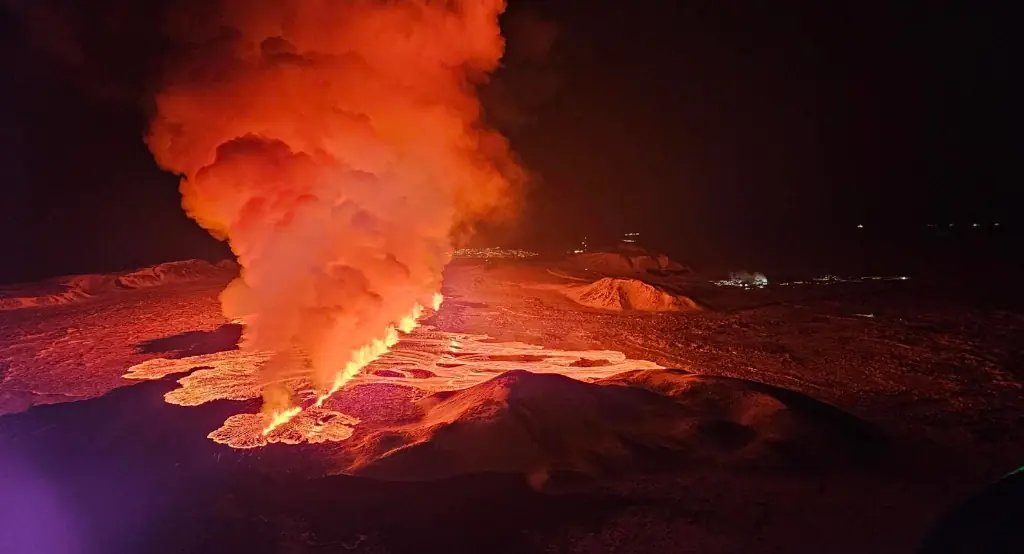Volcano erupts again on Iceland’s Reykjanes Peninsula amid ongoing volcanic activity
The eruption began early in the morning, following a series of small earthquakes felt the night before.
16th of July 2025

Iceland: A volcano erupted at the Reykjanes Peninsula early Wednesday, on July 16, exploded in the sky with a little lava, not enough to affect the residents living nearby, along with thick, black smoke. This marked the 12th eruption in the area since 2021, highlighting the ongoing volcanic activity in the region. The event is a display of Iceland’s natural beauty and danger which includes active volcanoes which are always in sight.
The volcanic eruption started early in the morning after a series of small earthquakes were felt the night before. At Litla-Skogfell, a kilometer long fissure opened up and lava began to run across the ground at a quick speed. While it appeared large-scale at the time, experts say that the eruption in fact is quite small.
Emergency evacuations are ordered for safety measures
Further, authorities evacuated the town of Grindavík and also the famous Blue Lagoon spa immediately as a safety measure. So far, there has been no report of damage to main roads, power plants or airports. However, people living nearby were warned to stay indoors to avoid breathing in harmful gases from the eruption.
Moreover, after investigations, scientists believed that this eruption is part of a larger volcanic cycle which only started in 2021 after a very quiet period of over hundreds years. The Reykjanes Peninsula has seen a great increase in volcanic action since then. Most of the recent eruptions have come from long cracks in the ground called fissures, from which lava can burst out at any moment.
Experts warn of similar eruptions in the future
Although at present, this eruption is of short term duration and caused widespread damage, experts report that eruptions like these are very likely in the future. The magma below the surface is still active which is a cause for the region’s instability and is expected to cause volcanic activity for many years.
Iceland, which is used to living with volcanoes, is still shocked at the speed at which this area is changing. Presently, emergency teams in the area are on high alert and scientists are watching out for any signs of the eruption intensifying.
Latest
- CrazyMess Wet & Dutty to Feature Bouyon Madness at Mas Dominik’s Carnival Monday 2026
-
St Kitts welcomes Oceania Nautica on its inaugural visit -
PM Roosevelt Skerrit meets beekeepers and pepper producers, plans modern processing facility to boost agriculture -
St Kitts and Nevis Cabinet celebrates History and Heritage Month in Traditional Afro-Caribbean Attire -
Dominica gears up for Bouyon Day as part of Mas Dominik 2026
Related Articles



5th of August 2024

2nd of October 2023


8th of April 2023

19th of April 2022

